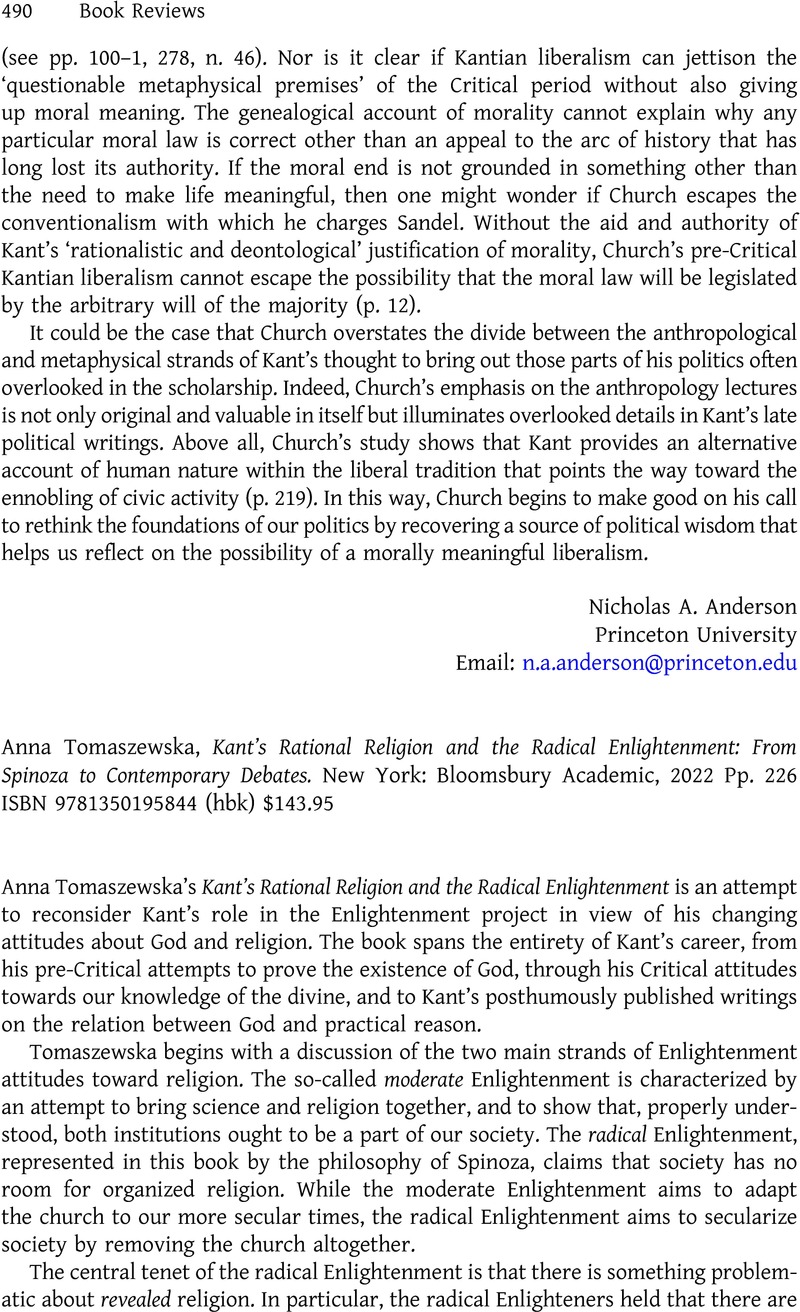No CrossRef data available.
Article contents
Anna Tomaszewska, Kant’s Rational Religion and the Radical Enlightenment: From Spinoza to Contemporary Debates New York: Bloomsbury Academic, 2022 Pp. 226 ISBN 9781350195844 (hbk) $143.95
Review products
Anna Tomaszewska, Kant’s Rational Religion and the Radical Enlightenment: From Spinoza to Contemporary Debates New York: Bloomsbury Academic, 2022 Pp. 226 ISBN 9781350195844 (hbk) $143.95
Published online by Cambridge University Press: 11 September 2023
Abstract
An abstract is not available for this content so a preview has been provided. Please use the Get access link above for information on how to access this content.

- Type
- Review
- Information
- Kantian Review , Volume 28 , Issue 3: Kant and Philosophy of Science , September 2023 , pp. 490 - 493
- Copyright
- © The Author(s), 2023. Published by Cambridge University Press on behalf of Kantian Review



